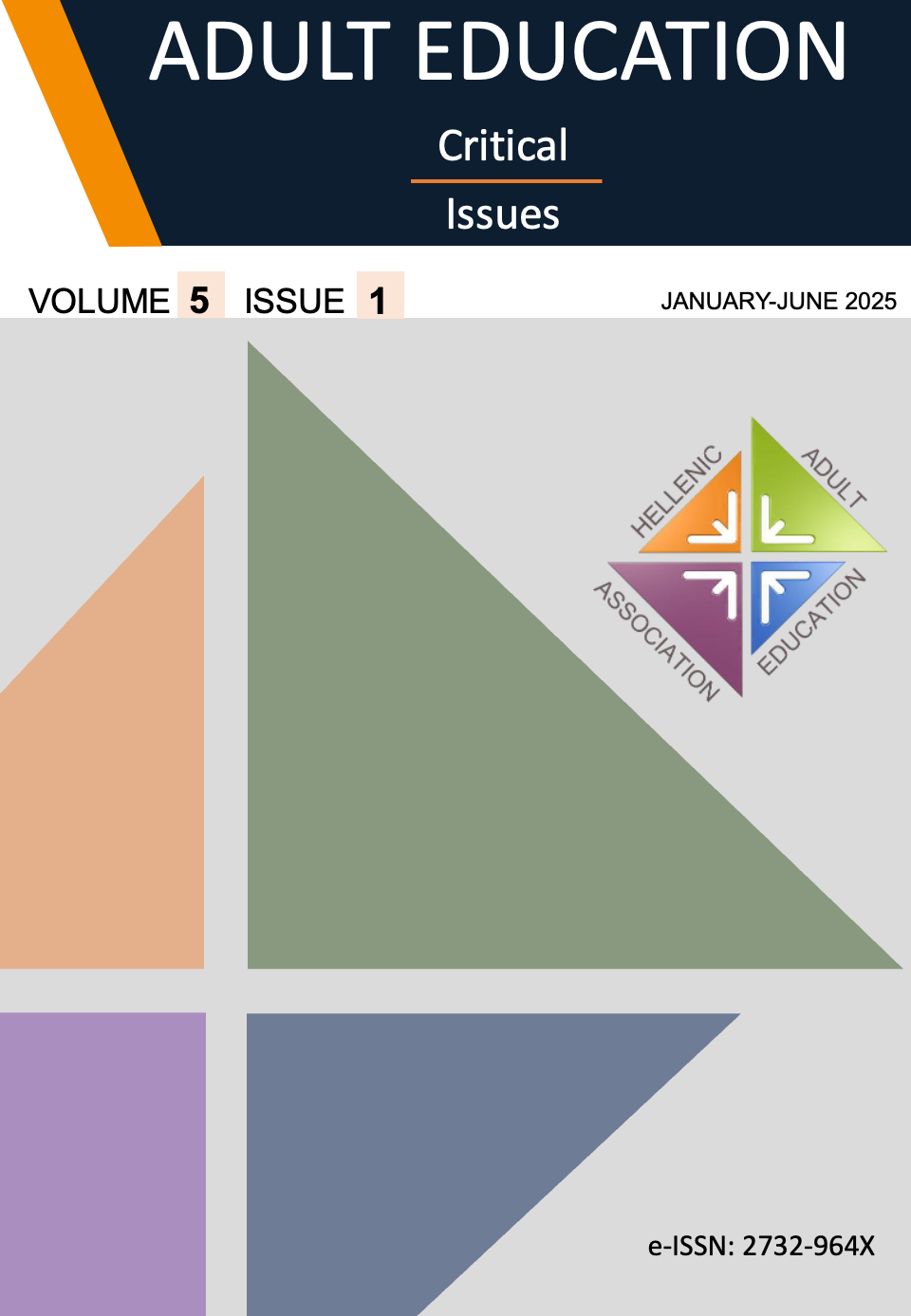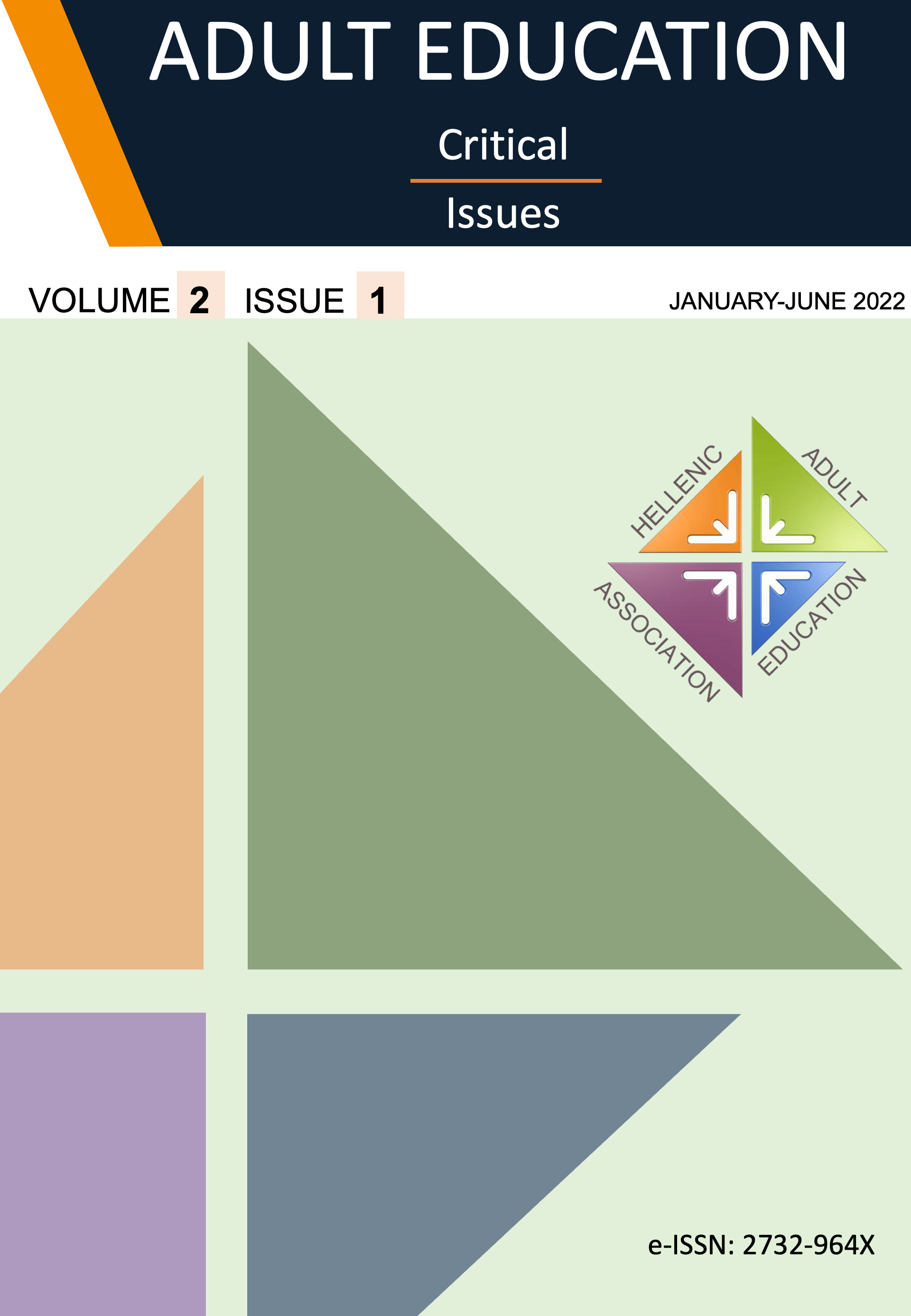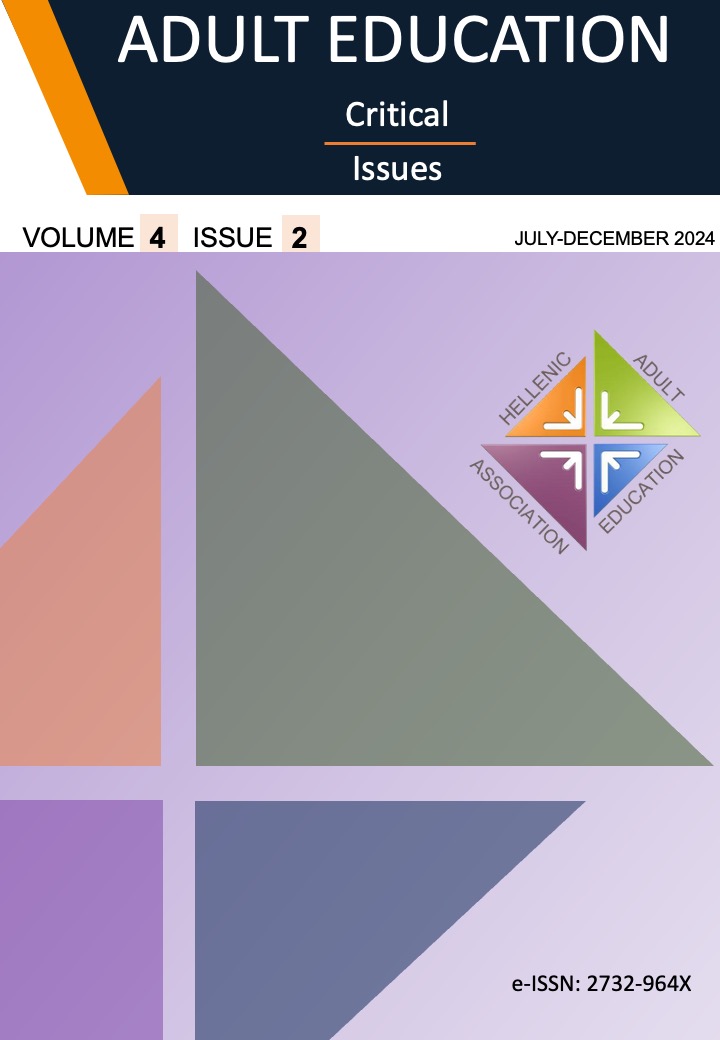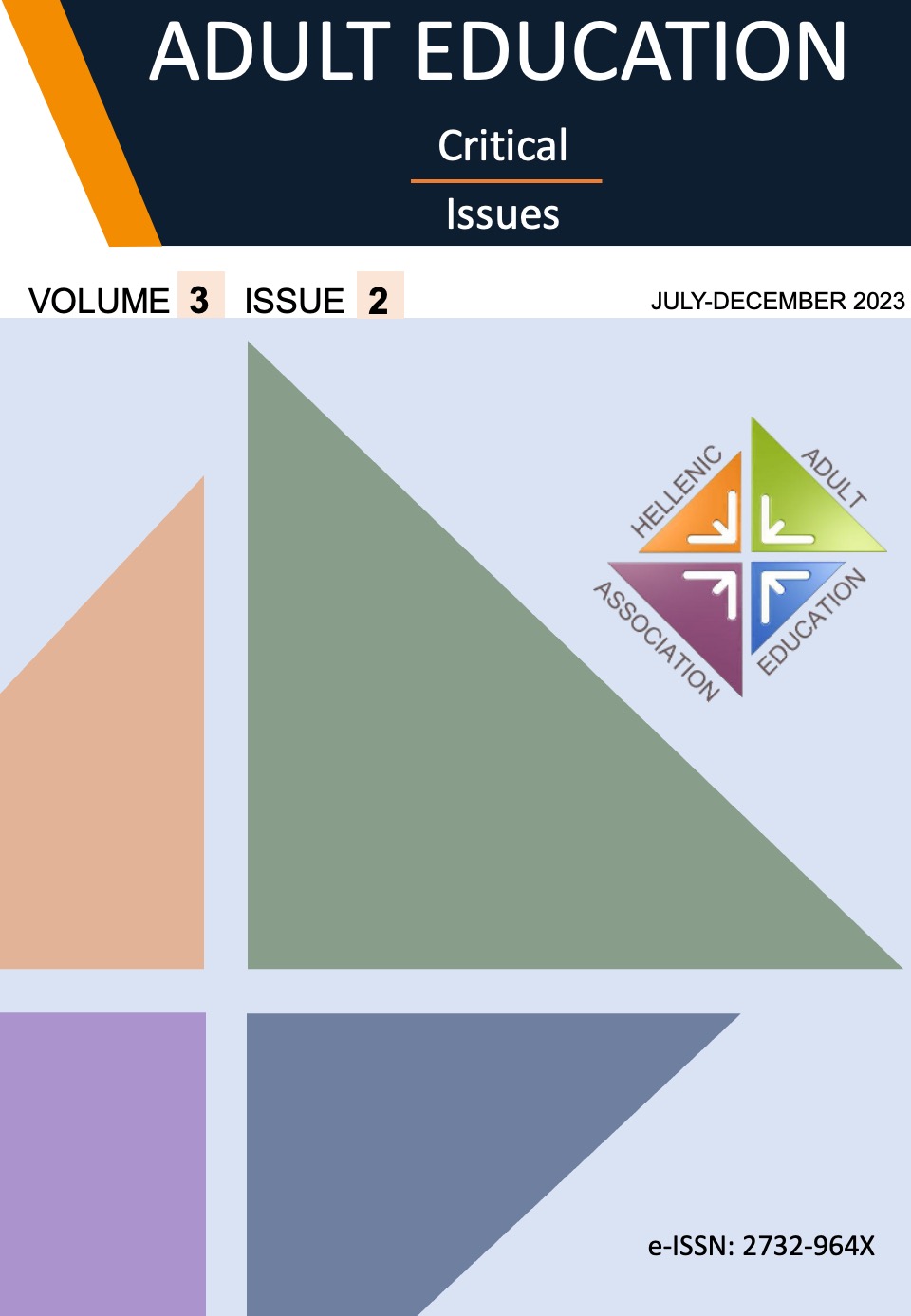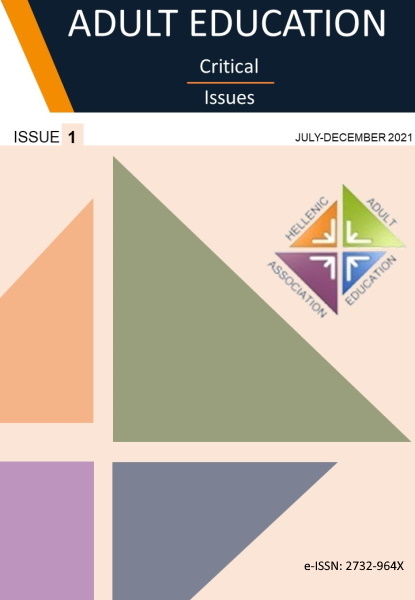Lifelong learning and Human Resources skills development in Greece
Abstract
Europe has been investing increasingly in Lifelong Learning in recent years, possibly due to the emergence of new challenges that include population mobility and aging, as well as the transformation of the labor market due to the 4th industrial revolution. The purpose of the current paper is to address the need to employ lifelong learning policies and strategies to ensure equal access for women to the workplace and leadership in order to achieve labor integration. This paper discusses the presenting problem on data provided by independent research organisations being either public or private entities. Investing in Lifelong Learning programs in the workplace in Greece, to ensure women’s equal participation and transformation in leadership roles is also discussed in relation to segregation phenomena such as mobbing and sexual harassment. The present paper suggests that even though women may participate in Lifelong learning programmes, policies and strategies need to focus more on enhancing their soft and digital skills, in battling sexual harassment in the workplace and promoting equal access to leadership roles.
Article Details
- Zitationsvorschlag
-
Tsiboukli, A., & Babalis, T. (2025). Lifelong learning and Human Resources skills development in Greece. Adult Education Critical Issues, 5(1), 79–86. https://doi.org/10.12681/haea.41620
- Rubrik
- Articles

Dieses Werk steht unter der Lizenz Creative Commons Namensnennung 4.0 International.
Authors who publish with this journal agree to the following terms:
- Authors retain copyright and grant the journal right of first publication with the work simultaneously licensed under a Creative Commons Attribution License that allows others to share the work with an acknowledgement of the work's authorship and initial publication in this journal.
- Authors are able to enter into separate, additional contractual arrangements for the non-exclusive distribution of the journal's published version of the work (e.g., post it to an institutional repository or publish it in a book), with an acknowledgement of its initial publication in this journal.
- Authors are permitted and encouraged to post their work online (e.g., in institutional repositories or on their website) prior to and during the submission process, as it can lead to productive exchanges, as well as earlier and greater citation of published work (See The Effect of Open Access).

